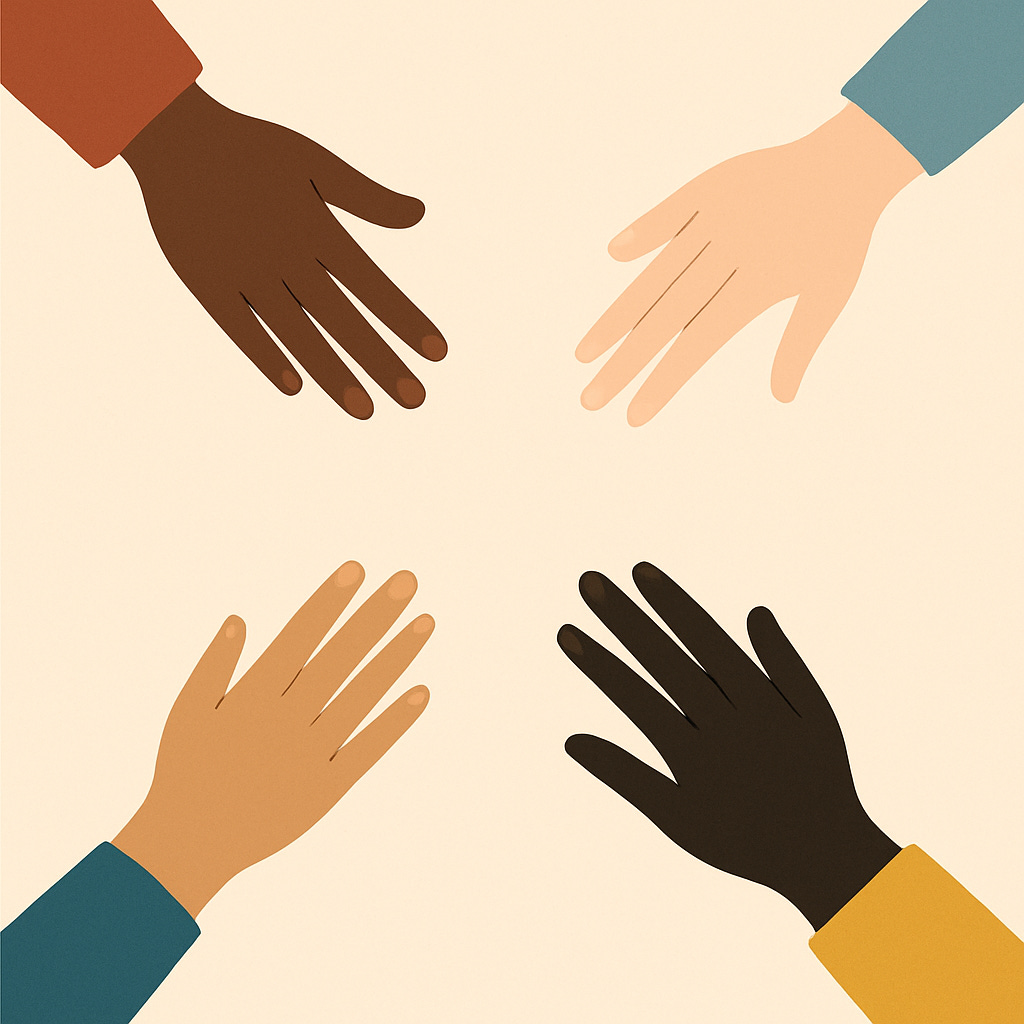✍️ Make America Gracious Again
The power of generosity in politics, communities, and everyday life
Why Graciousness Matters
Public life today is loud, confrontational, and often cruel. Calls for kindness or courtesy can sound naïve, even dangerous, when we’re faced with bigotry, selfishness, and deceit. Yet constant anger and insult wear us down without solving much.
I began reflecting on all this as a kind of counterpoint to Trump’s Make America Great Again. I kept asking myself: What’s a positive, productive alternative? Nothing came to mind that sounded right. But recently, I landed on gracious as the word that seemed to fit. And I set out to learn what it could mean in practice.
Graciousness isn’t weakness. It’s not rolling over or “being nice” in the face of cruelty and hate. Real graciousness is strength with integrity—standing firm against falsehood while treating people with dignity, even in conflict.
How Graciousness Looks in Practice
The principle is simple: Balance firmness with generosity. The practice is harder. It often takes imagination to act graciously, especially in situations that push us toward anger or despair. Here are five ways to begin:
When someone spreads misinformation
Don’t argue every point. Ask: “What’s your source?” or “How do you know that’s true?” As Adam Grant reminds us in Think Again, questions spark rethinking better than lectures. If they’re open, share reliable information.When you hear bigotry or cruelty
Speak up calmly and directly. Try: “That’s not OK.” Dr. Martin Luther King Jr. showed that nonviolent truth-telling can call out harm without sinking to hate.When a conversation gets heated
Negotiator William Ury (Possible) teaches that pausing and listening can defuse tension. Lower your voice instead of raising it. Your composure can reset the whole tone.When confronting selfishness or greed
Saul Alinsky (Rules for Radicals) reminded activists that respectful pressure is still pressure. You can say: “I hear your position, but it harms others. Here’s why.” That’s confrontation without contempt.When tempted to lash out online
Outrage fuels division. Before posting, ask: “Will this clarify or just inflame?” Graciousness doesn’t mean silence; it means choosing words that sharpen truth without needless venom.
More Ways to Practice Graciousness
Those situations are just the beginning. Here are four more places it matters:
At a public meeting
Wait your turn. Speak firmly but without jeering or insults. As Paul and Mark Engler write in This Is an Uprising, disciplined action carries more weight than chaos.When leaders act arrogantly or demand loyalty
Reassert the principle: “Leaders are elected to serve the public, not the other way around.” Eric Liu (You’re More Powerful Than You Think) argues that reminding leaders of their accountability is an act of civic power.With neighbors you disagree with politically
Keep showing small kindnesses: help with groceries, wave from your mailbox, share your garden surplus. Ta-Nehisi Coates (Between the World and Me) shows how dignity and humanity can persist even amid deep divisions.In stressful everyday moments
Grace under pressure can look like staying calm in traffic, at the pharmacy counter, or during family conflict. As Ury writes, “go to the balcony” — rise above the heat of the moment before reacting.
Where Graciousness Belongs
We need graciousness in every sphere of life:
In politics and public life: civil discourse instead of insults; humility instead of arrogance; leadership rooted in service, not loyalty demands.
In communities: courtesy and compassion for neighbors; cooperation instead of constant suspicion; forgiveness where grudges poison relationships.
In personal conduct: patience in stress; gratitude as a habit; generosity as the first instinct.
Practicing graciousness isn’t easy. That’s certainly true for me. Even as I read and write—for this commentary and for other projects—I realize how much I still have to learn. The experts I cite are my teachers, too.
A Story of the Eighteenth Camel
William Ury tells the story of three brothers who inherit 17 camels. Their father’s will is clear: Half should go to the eldest, a third to the middle, and a ninth to the youngest. But 17 can’t be divided that way. They argue and argue, stuck in an impossible conflict.
A wise woman steps in. She offers one of her own camels, bringing the total to 18. Suddenly the division works perfectly: 9, 6, and 2. That makes 17, and the woman takes her camel home.
The story isn’t really about camels. It’s about imagination—the willingness to add something unexpected that changes the whole equation. The flexibility to see possibilities beyond the obvious. A spark of grace or generosity can turn a deadlock into resolution.
That’s what graciousness can do. It doesn’t erase the argument. It opens the space where a real solution can finally take root.
Closing Note
If we can practice that balance—firm in truth, generous in spirit—we may just make America gracious again.
📚 Further Resources
If you’d like to go deeper, the books and guides below offer wisdom and practical tools for bridging divides, sustaining activism, and finding common ground:
Books to Help Us Bridge Divides and Resolve Conflict — titles that have informed this essay, another writing project of mine, and my political advocacy.
Conflict Resolution & Community Healing — tools and support for navigating inner tension, interpersonal friction, and group conflict.
Resources for Activist Resilience and Emotional Support — ways to stay grounded, connected, and well while working change.
If my commentary resonates with you, please share it with friends.
Get new posts from Plainly, Garbl delivered to your inbox.



